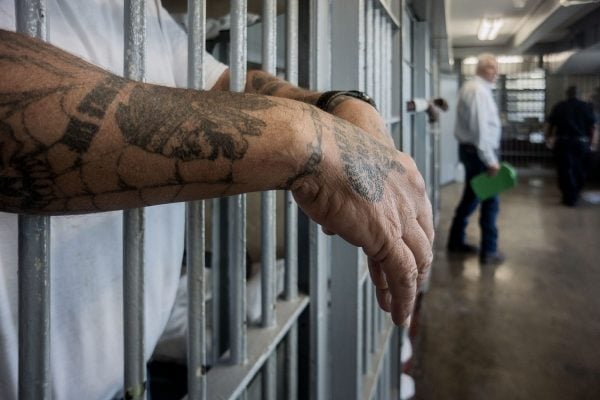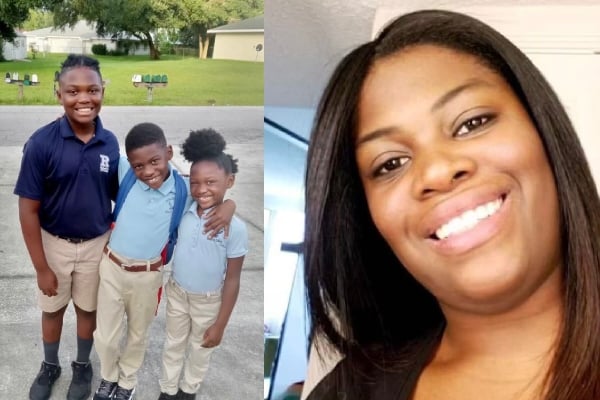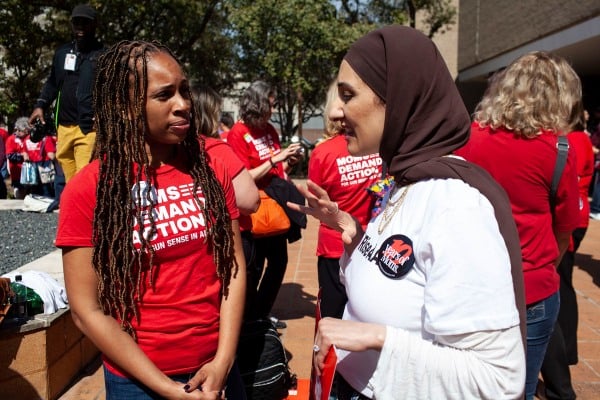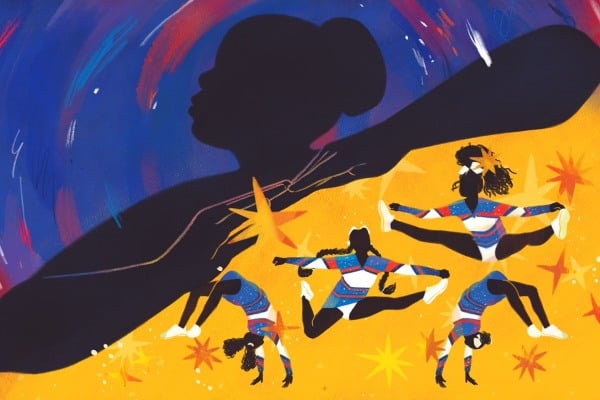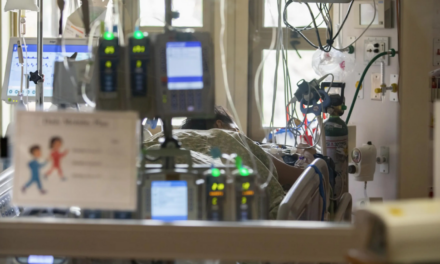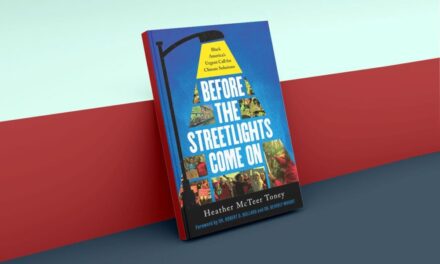We’re telling the untold stories of women, women of color and LGBTQ+ people. Sign up for our daily newsletter.
Asia Davis got a special gift on Mother’s Day in 2017: her first and only child, Myles Karter Davis. She wanted everything to be perfect for her daughter. Asia called her own mother nonstop to make sure she was doing everything just right. As Myles got older, Asia took her to get her hair and nails done regularly, dressing her up as if she was her own personal baby doll. Asia loved to look beautiful, and so did Myles.
Six years after she was born, Myles’ birthday would fall on Mother’s Day again. But Asia would not be there to celebrate.
The 28-year-old had been working as a nursing assistant and lived in her own apartment in New Orleans East. Asia had overcome many obstacles, and she was just getting to a good place in her life, said her mother, Kenya Davis.
Shortly after Asia put her daughter on the school bus on May 11, her boyfriend, Henry Talley Jr., allegedly shot and killed her. Witnesses said that Myles’ bus had left, but a news photo shows another school bus passing the crime scene. A child peers out of the window, overlooking the curtain officers placed to shield Asia’s body from view.
Now, 6-year-old Myles is left without her mother. And Kenya Davis is left to raise her granddaughter while grieving her only daughter.
“It’s so hard for me to put one foot in front of the other, and it’s hard for me to get up some days. But I keep going for my granddaughter,” Davis said. “That’s what I’ve got left of my daughter … it tears my heart up to know how affected she is.”
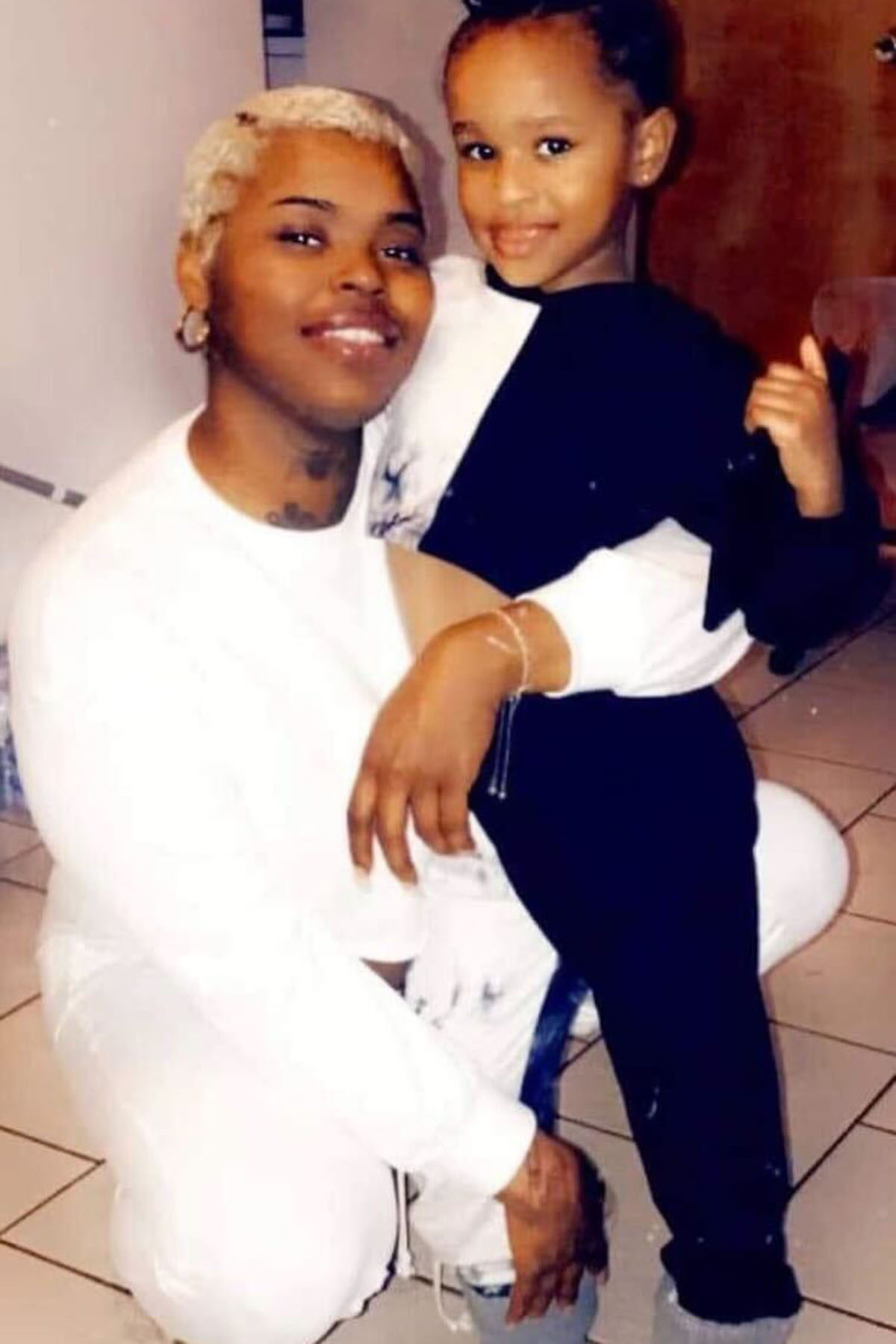
(Courtesy of Kenya Davis)
Asia was one of nine women killed in New Orleans in less than seven weeks between April 20 and June 2. All of them were Black and victims of gun violence. Eight of them were mothers. Some of them, like 33-year-old Sully Simmons, were killed in front of their children.
Since the onset of the pandemic in 2020, homicides continued to rise in the city through 2022. Though the numbers have begun to fall in 2023, the number of women victims has continued to rise. As of June 4, 16 women had been killed in New Orleans in 2023, according to the Metropolitan Crime Commission. This is on track to exceed the 36 reported by the New Orleans Police Department at the end of last year.
What’s happening in New Orleans, the major city with the highest homicide rate in the country last year, is an amplified example of a nationwide trend: Black women are being killed at alarming rates, and their children are being left behind to deal with the lasting effects of loss and the devaluation of their mothers’ lives.
The Guardian’s 2022 analysis of Centers for Disease Control and Prevention data revealed that killings of Black women nationwide spiked 33 percent in 2020, higher than any other demographic group except Black men. In Washington, D.C., the number of Black women homicide victims nearly quadrupled from 2019 to 2020 and continued to rise in 2021. In St. Louis, 78 percent of women homicide victims in 2022 were Black. In both cities, Black women homicide victims ranked consistently higher than most demographic groups, second only to Black men.
Experts say that while an increase in violence overall during the pandemic can partially explain the increase, the severity of this increase among Black women is unique, related to their identities and their place in society.
The nature of Asia’s death speaks to that dynamic. After she was shot, witnesses say her killer then ran her over with his car. Her body lay in plain sight from the interstate, and photos circulated online.
“Nobody deserves what she got,” Davis said. “My child was violated.”
Misogynoir and violence against Black women
Asia was the type of person who would stand up for people around her. She hated bullies and she always wanted to protect people, her mother said.
“You don’t have ‘bodyguard’ written on your forehead,” Davis told her daughter, then in high school, after she got into a fight on behalf of someone who was being picked on.
But Asia was also a type of person who many people do not stand up for: a Black woman and single mother.
Asia called the police related to intimate partner violence twice in the weeks leading up to her killing. Police responded to each call after about 12 hours. Both were marked “gone on arrival,” meaning the suspect was no longer present, and no further action was taken. According to Bureau of Justice Statistics data, more than a third of women who were victims of homicide or nonnegligent manslaughter were killed by an intimate partner.
Reginald Parquet, a professor at Tulane University, says the rising killings of women in New Orleans can be attributed to multiple factors: an increase in gang and drug involvement, revenge killings and intimate partner violence. While these factors have contributed to the increase, intimate partner violence against Black women has been a constant, as it has been nationwide.
“As Black women, we’re truly not valued. Whether we’re talking about within or outside of the community. We’re just seen as caretakers of others. … Our worth is based on how much we can take, being strong, who we’re taking care of. We’re just seen as the workhorses of the community,” said Rosa Page, a mental health nurse in Arkansas.
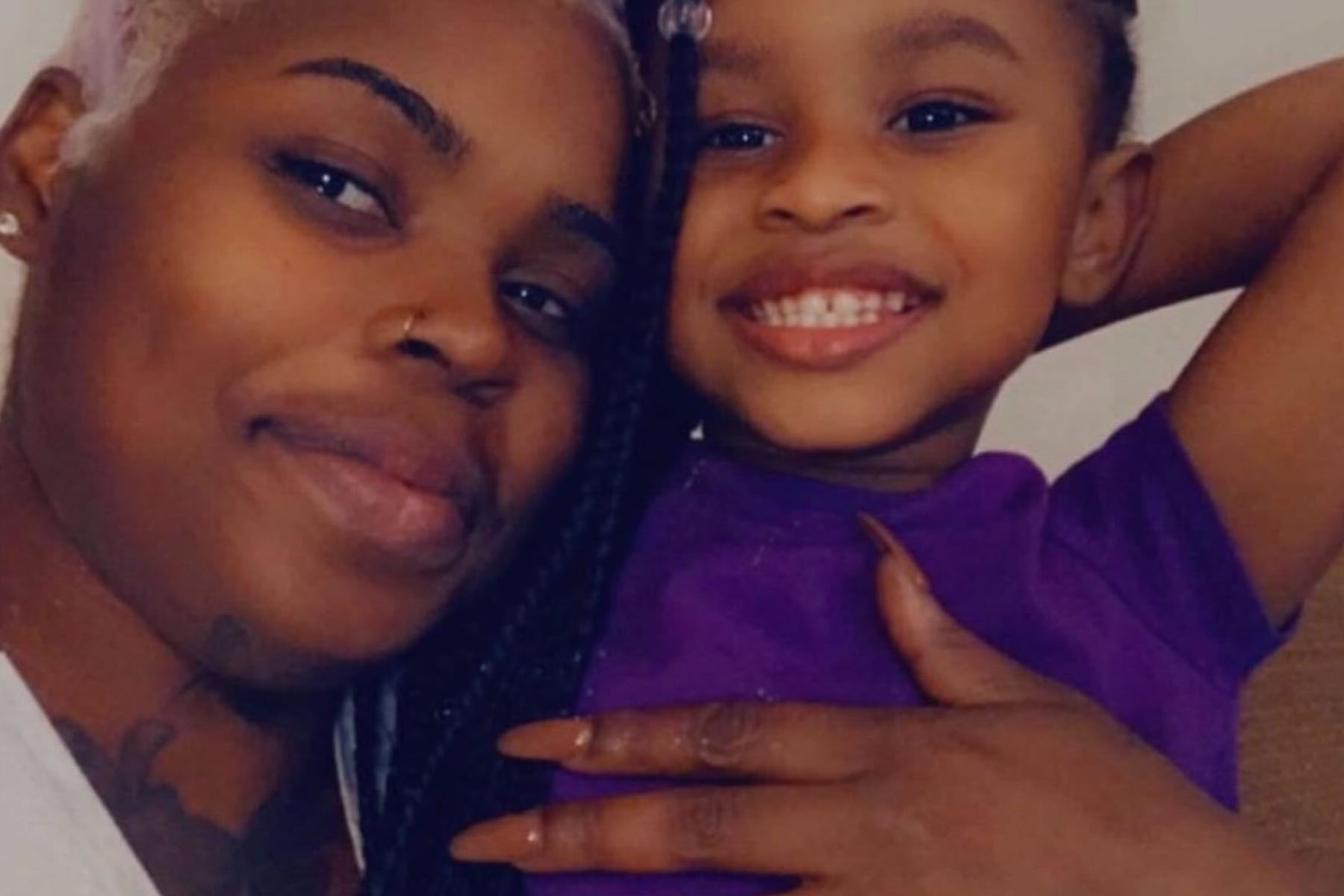
(Courtesy of Kenya Davis)
Page noticed while doing patient intake throughout her 33-year career that many of her patients who are Black women and girls had experienced physical, mental or sexual violence, or knew others who had. She began keeping her own data and started a Facebook page, Black Femicide U.S., to keep track of the killings of Black women because she was skeptical of the data available at the time.
FBI data later corroborated what she’d seen up close: Black women were being killed at much higher rates than most demographic groups. In 2020, at least four Black women and girls were killed in the United States per day. Experts said it was not yet clear how much of that increase could be attributed to domestic violence or other factors.
Page and Cassandra Gonzalez, a criminologist and professor at Sam Houston State University, note that while Black women are not valued, Black single mothers are valued even less.
“There’s already this lack of care or respect for Black motherhood in general. It doesn’t surprise me to know that they aren’t viewed as being worthy of more protection and more consideration from someone. This is both from people who are their intimate partners and society in general,” Gonzalez said.
-
Around The Country:
Gonzalez noted the pervasiveness of rhetoric blaming all the ills plaguing Black communities on single mothers. It has been perpetuated both online, from social media influencers with large followings like Kevin Samuels, and in real life. Both she and Page say this vitriol encourages and normalizes violence against Black single moms.
Black single mothers’ necessary self-sufficiency, as well as their position in society that often empowers them to better the community, often lead abusers to try and steal their power.
“We do know how to love and value and protect ourselves. Knowing how to love and protect ourselves is a threat to someone who doesn’t want their partner to love, value or protect themselves,” Gonzalez said. “And how you deal with that is the ultimate power play: You take her life.”
Cyclical violence in “The City That Care Forgot”
Davis has not been able to go back to work since her daughter was killed — Myles is severely traumatized and has developed an attachment disorder. Forensic psychologists told her Myles will need years of counseling to be able to address the trauma of losing her mom to violence.
“If a mother dies when the child is very young and obviously still needs their mother biologically, that can have a huge impact on their functioning and their development and how they relate to other people,” said Dr. Erika Rajo, a trauma psychologist at University Medical Center in New Orleans.
“Separation from your primary caregiver, whether you witness it or not, can be very destructive and lead to feelings of abandonment and can later on result in difficulties trusting others, believing that others will also disappear or abandon you,” Rajo added.
Children who lose their parents to violence may also experience post-traumatic stress disorder, anxiety, behavioral issues, depression, difficulty building relationships and feelings of guilt. Witnessing a parent’s violent death can intensify those effects.
Children’s grades may begin to slip. They may act out in school or have a hard time paying attention, said Keva Carr, program director of children’s services at the New Orleans Family Justice Center. Carr said the children and teenagers she works with, many of whom have lost their mothers to domestic violence, often tell her that adults don’t realize how the trauma of violence can affect them physically, emotionally and psychologically.
Through the center, she provides counseling, support groups, family therapy, summer camps and more to address trauma and foster a sense of hope in children affected by family violence.
When children are left with untreated trauma from violence, Carr said, it can affect the value they place on their own lives. They tend to lose hope, feel that they cannot accomplish tasks or goals, and are more likely to engage in risky behaviors.
She works with children ages 5 to 17, and is looking to expand their services to younger children, who may not be able to express how the trauma of losing their mothers can affect them, such as the infant children of Sully Simmons and Neisha Anderson, who both witnessed their mothers’ killings in New Orleans. Children under 5 may act out the violence they experienced while playing, according to Rajo. The expansion of services would include play therapy and working with the children’s caregivers.
Sometimes, children with untreated trauma from violence can also become looped into a cycle that perpetuates the very violence they experienced. And that trauma can be passed down through generations, experts said.
“The fact that you don’t believe that you can improve the condition, you don’t believe that the system is designed to help you lift yourself up out of poverty, you just kind of give up.
They don’t really care because they don’t see much hope for their future. So they don’t mind taking your life or losing theirs. That’s part of that hopelessness,” Parquet said.
New Orleanian Nadia Sanchez started her nonprofit organization, Love Your Neighbor NOLA, after she witnessed teenagers kill her mother and injure her husband in a violent carjacking. Sanchez’s younger siblings, then 11 and 12 years old, also witnessed their mother being killed.
Throughout the court proceedings, she learned about her mother’s killers and the trauma they endured. She learned that two teenage brothers involved in the carjacking were raised by a single mother and that one of their fathers had been killed years earlier at their home. Their family was from Desire, one of the city’s most historically neglected neighborhoods.
“I can’t imagine their upbringing. They witnessed something as tragic as I did. You witness a murder and you have to go back to that place and feel safe and feel like you just have to move on with your life and feel like that’s normal,” Sanchez said.
-
Read Next:
She sympathized with the teens’ story because she recognized parts of her own. She was raised by a Latina single mother who endured abuse and struggled with addiction. She said she was often told or made to feel that no one cared.
“That normalization is the equivalent of what you see with the people in my mom’s case that just had to survive and live through violent experiences,” Sanchez said.
Sanchez is a firm believer that people are able to transcend their circumstances. That’s why she started Love Your Neighbor NOLA. The group provides basic needs, such as diapers, clothing and shoes, and builds relationships within the community to connect neighbors with services they may not be able to provide, such as behavioral specialists and housing resources.
“There are statistics that show I should be an alcoholic, or a single parent, or I should be a drug user,” she said. “It can feel very impossible and oppressive being in certain situations and feeling like you independently have no way out and you have no one to pull you up out of it. That was the genesis of why I started this. I wanted to be that person like, you don’t have anyone right here where you are, we can be that. We’ll be your support system,” she said.
Parquet described a multifaceted approach that would be necessary to address the cycles of violence and trauma in New Orleans: meeting communities where they are and connecting them with the resources that they lack, going into the school systems and creating educational opportunities beyond training youth to be hotel maids or waiters to serve the thousands of tourists coming into the city. Programs like Carr’s and the trauma center at Rajo’s hospital are expanding the services they provide to youth to address trauma.
But nothing can be done to fill the void that the killings of Asia Davis and multiple other women have left in the lives of their families and friends.
“It’s really broken up our family, her friends, my friends, everybody’s friends. It’s just a shocker that this happened to Asia. She touched the lives of so many people, and so many people loved her,” Kenya Davis said. “I am here to celebrate my child and her legacy, but who wants their child’s legacy to stop at 28 years old?”


